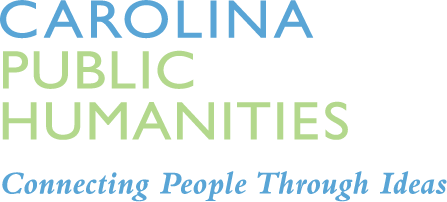China Since 1949
Co-sponsored by the Ackland Art Museum
With support from the Department of History, The Center for Global Initiatives, and the Carolina Asia Center
September 28-29, 2012
 China has undergone remarkable transformations since Mao declared the Republic in 1949. Most of these changes have occurred in the last three decades, and include amazing economic growth (an annual average rate of 10% over thirty years) and astonishingly far-reaching urbanization, with some 150 million people moving from the countryside to work in factory towns along the coast. China is now the world’s largest consumer, and average Chinese citizens take center stage in a polity that restricts political freedom but is largely decentralized.
China has undergone remarkable transformations since Mao declared the Republic in 1949. Most of these changes have occurred in the last three decades, and include amazing economic growth (an annual average rate of 10% over thirty years) and astonishingly far-reaching urbanization, with some 150 million people moving from the countryside to work in factory towns along the coast. China is now the world’s largest consumer, and average Chinese citizens take center stage in a polity that restricts political freedom but is largely decentralized.
We can’t cover all aspects of China’s transformation, but we have asked three experts to provide us an overview of some key issues. Peter Coclanis traces China’s economic rise since the 1970s, exploring the causes and effects of the country’s ascent, while reflecting on the problems associated with this growth. Xi Chen discusses the legacy of socialist ideology and considers how the ideas of socialism are used by political elites and the poor in their everyday struggles. Joseph Tucker considers the biological and social drivers of syphilis infection which have made China the epicenter of the global syphilis epidemic.
Friday evening features a public screening of the documentary The Revolutionary about Sidney Rittenberg, whose life provides a compelling entryway into understanding China’s past and present. Sidney, who attended UNC in 1937-1940, went out to China in 1945 as a Chinese linguist and interpreter with the U. S. Army. After the war, he linked up with the Chinese Communists and remained in China for 35 years, working as an English language specialist for New China News Agency and Radio Beijing. He came to know intimately all the top leaders of the Communist Party. On two occasions, however, he was arrested and placed in solitary confinement, first on the charge of being an American spy and again when he backed a losing faction during the Cultural Revolution. Altogether he served sixteen years in prison, nearly half his time in China.
Rittenberg returned to the United States for a brief visit in 1979, during which time he came back to UNC for the first time in forty years to give a talk on US-China relations. The next year, he and his Chinese wife and their four children moved back to America on a permanent basis. For five years from 1994 to 1998, Sidney was a visiting professor of history at UNC, teaching courses on the Chinese revolution and his own personal experiences in China. He now lives near Seattle, has established a consulting firm that helps major American corporations do business with China, and also is a visiting professor of Chinese Studies at Pacific Lutheran University in Tacoma. He travels to China several times each year and is considered one of the most knowledgeable foreigners about contemporary Chinese politics and economy.
Topics and Speakers
Cracks beneath the Surface: China’s Economic Rise and Uncertain Future
Peter A. Coclanis, Albert R. Newsome Distinguished Professor of History and Director, Global Research Institute
Film Screening: The Revolutionary
Socialist Ideology as a Political Weapon in Today’s China
Xi Chen, Assistant Professor of Political Science
Resurgent Syphilis in China: A Biosocial History of Syphilis in Modern China
Joseph D. Tucker, Assistant Professor, School of Medicine and Director, UNC Project-China
China Rising?
A panel discussion with our speakers
Time and Cost
4:30 p.m. Friday, September 28, through 1:00 p.m. Saturday, September 29, 2012. The tuition is $125 ($110 by September 13). Tuition for teachers is $62.50 ($55 by September 13). 10 contact hours for 1 unit of renewal credit. The optional dinner on Friday evening is $20.00.
Note: There is a home football game scheduled for this weekend which might affect hotel availability. Please contact us for recommendations by calling 919-843-9386.
For information about lodging click here.
Co-Sponsored by the General Alumni Association.
For information about GAA discounts and other scholarships available to Humanities Program participants, click here.
